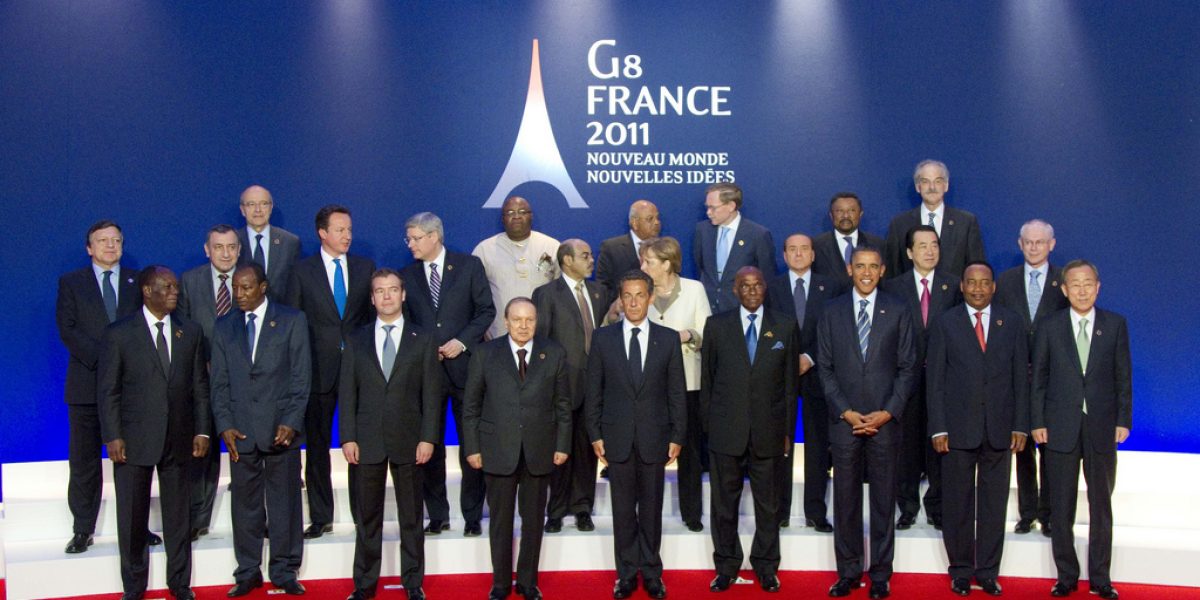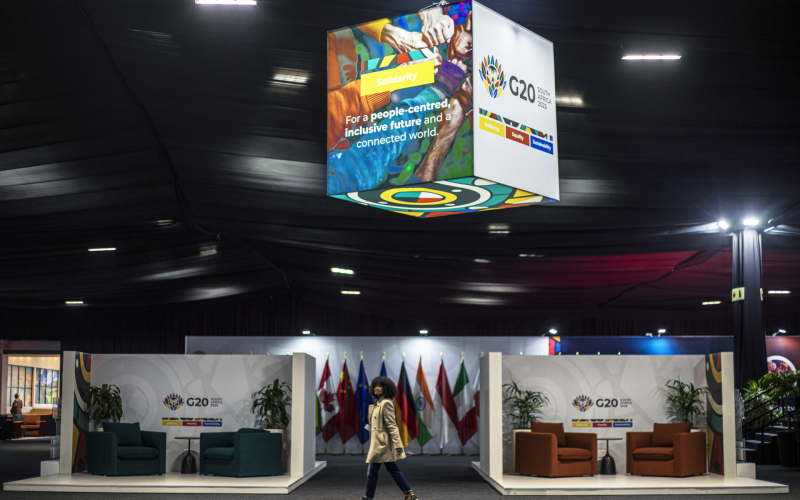First there is the matter of the G8’s relevance to the changing global order. Clearly these economies remain powerful forces, and as the Libyan intervention has proved, the West, led by the G7 (excluding Japan) retains strong geopolitical weight. The G8 (the G7 plus Russia) also retains a strong security focus.
The G20 leaders’ group, by contrast, is primarily an economic forum. Nonetheless, in matters of geo-economics the G20 is the main informal gathering of world economic leaders. Yet its efficacy beyond the financial crisis is now being seriously tested.
The current fracas over who will be the next managing director of the IMF symbolises one fault-line within the G20; between emerging markets and the G7 (Russia seemingly aligned with the BRICS), particularly its European members. The smart money is on Europe retaining that post, notwithstanding recent signs of coordination by the BRICS countries. If this proves to be the case, it will be one sign that the ‘ancien regime’ retains some vitality notwithstanding the conventional wisdom that the west is in decline.
By contrast the G7 economies retain powerful influence within the G20, with some commentators regarding it as a ‘caucus group’. Owing to the G7’s established modus operandi built up over decades, and their economic heft, it is likely that those countries will retain a powerful role for some time to come.
For most African countries these geo-economic squabbles are of little direct interest. Indeed, many have been exhibiting rapid growth in recent years, fed by the commodities price boom, to the extent that major international financial investors have lined up to take a share of the action. This welcome development, fed by the rise of Foreign Direct Investment (FDI) from major emerging markets including China, India, and Brazil, and the growth of African remittances from the diaspora, has distracted attention away from the usual African leaders’ preoccupation: aid.
Nonetheless, the African growth story is patchy. Not all countries are sharing in it; some remain deeply mired in poverty and maladministration; and still others continue to experience the deleterious effects of civil conflicts. It is not surprising therefore to find that 33 of the global total of 48 least developed countries (LDCs) are to be found in Africa. In fact whilst poverty is being rapidly reduced outside of the continent, and LDCs in the Pacific, South Asia and Southeast Asia are expected to graduate from this unwelcome category in the next few years, very few African countries are projected to do so. According to the UN High Representative for LDCs only Angola and Equatorial Guinea will, and these two countries have very dubious records of promoting inclusive economic growth.
Therefore the G7’s aid flows (Russia is not a major donor nation) continue to be relevant to the sub-continent. However, their record is rather mixed. Indeed in recent weeks it has been accused of literally inflating its performance in meeting the 2005 Gleneagles summit targets. Consequently, the western community of non-governmental organisations is once again in uproar. Oxfam, for example, through their development finance head, Max Lawson, stated that ‘cooked books will not feed anyone in Africa’. Jamie Drummond, executive director of Bono’s anti-poverty organization, called for Italy to be expelled from the G8 for serial underperformance on the aid delivery front. Given the governance example the Berlusconi administration sets for the rest of the world, and Africa in particular, it is difficult not to be sympathetic to this idea.
Overall, aid still retains its relevance in the African LDC story, albeit it would be preferable for Africans to feed themselves. But more than this is needed to lift countries out of poverty. Governance, particularly sound economic policies extending to management of resource rents in the broader societal interest remains the pivotal concern. Also of importance is construction of network infrastructure in transport, communications, and energy, and linking this to widening African markets through regional economic integration.
The G20 understands this agenda, and explicitly endorsed it through its ‘Seoul Development Consensus’, a document that emerged from the development working group co-chaired by South Africa. It remains to be seen to what extent the G7 will line up behind this agenda and throw their collective weight behind its implementation using their disproportionate influence in key multilateral institutions such as the World Bank. And the jury is still out on whether the G20 has the wherewithal to implement this, and other, agendas.
From these trends it is clear that whilst the old order is dying, the new order is struggling to be born. In this context the G7/8 summit should continue to be watched, if only to witness the last, perhaps tortuous, twitches of a once all-powerful beast. One is reminded of Shelly’s famous poem, Ozymandias:

I met a traveller from an antique land
Who said: Two vast and trunkless legs of stone
Stand in the desert. Near them, on the sand,
Half sunk, a shattered visage lies, whose frown
And wrinkled lip, and sneer of cold command
Tell that its sculptor well those passions read
Which yet survive, stamped on these lifeless things,
The hand that mocked them and the heart that fed.
And on the pedestal these words appear:
“My name is Ozymandias, king of kings:
Look on my works, ye Mighty, and despair!”
Nothing beside remains. Round the decay
Of that colossal wreck, boundless and bare
The lone and level sands stretch far away.
Percy Bysshe Shelley (1818)








